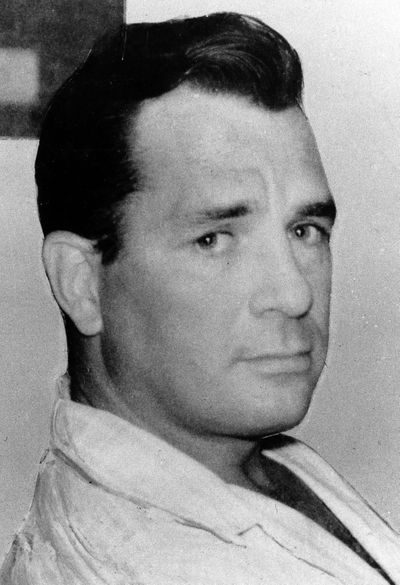Long-lost letter that inspired Beat author Kerouac found

LOS ANGELES – It’s been called the letter that launched a literary genre – 16,000 amphetamine-fueled, stream-of-consciousness words written by Neal Cassady to his friend Jack Kerouac in 1950.
Upon reading them, Kerouac scrapped an early draft of “On The Road” and, during a three-week writing binge, revised his novel into a style similar to Cassady’s, one that would become known as Beat literature.
The letter, Kerouac said shortly before his death, would have transformed his counterculture muse Cassady into a towering literary figure, if only it hadn’t been lost.
Turns out it wasn’t, says Joe Maddalena, whose Southern California auction house Profiles in History is putting the letter up for sale Dec. 17. It was just misplaced, for 60-some years.
It’s being offered as part of a collection that includes papers by E.E. Cummings, Kenneth Rexroth, Robert Penn Warren and other prominent literary figures. But Maddalena believes the item bidders will want most is Cassady’s 18-page, single-spaced “Joan Anderson Letter” describing a drunken, sexually charged, sometimes comical visit to his hometown of Denver.
“It’s the seminal piece of literature of the Beat Generation, and there are so many rumors and speculation of what happened to it,” Maddalena said.
Kerouac told the Paris Review in 1968 that poet Allen Ginsberg loaned the letter to a friend who lived on a houseboat in Northern California. Kerouac believed the friend then dropped it overboard.
“It was my property, a letter to me, so Allen shouldn’t have been so careless with it, nor the guy on the houseboat,” he said.
As for the quality of the letter, Kerouac described it this way: “It was the greatest piece of writing I ever saw, better’n anybody in America, or at least enough to make Melville, Twain, Dreiser, Wolfe, I dunno who, spin in their graves.”
It turns out Ginsberg apparently was trying to get it published when he mailed the letter to Golden Goose Press in San Francisco. There it remained, unopened, until the small publishing house folded.
When it did, its owner planned to throw the letter in the trash, along with every other unopened submission he still had in his files.
That was when the operator of a small, independent music label who shared an office with publisher Richard Emerson came to the rescue. He took every manuscript, letter and receipt in the Golden Goose Archives home with him.
“My father didn’t know who Allen Ginsberg was, he didn’t know Cassady, he wasn’t part of the Beat scene, but he loved poetry,” said Los Angeles performance artist Jean Spinosa, who found the letter as she was cleaning out her late father’s house two years ago. “He didn’t understand how anyone would want to throw someone’s words out.”